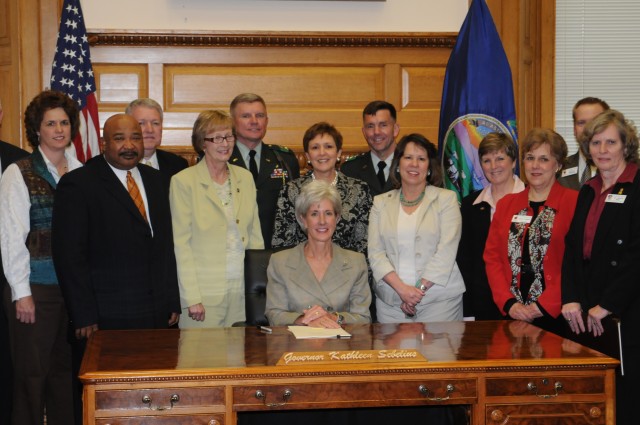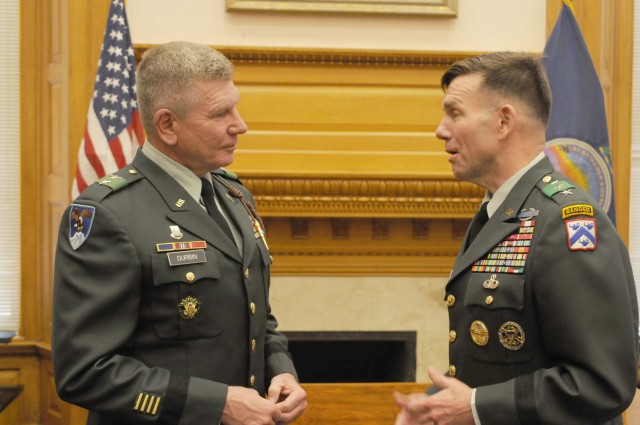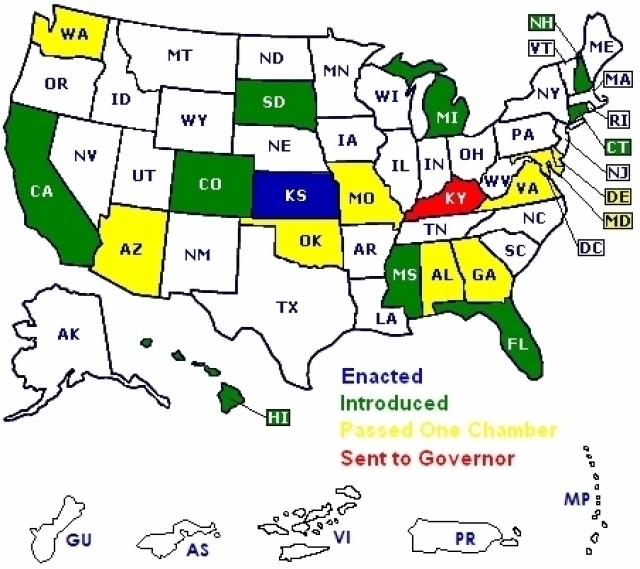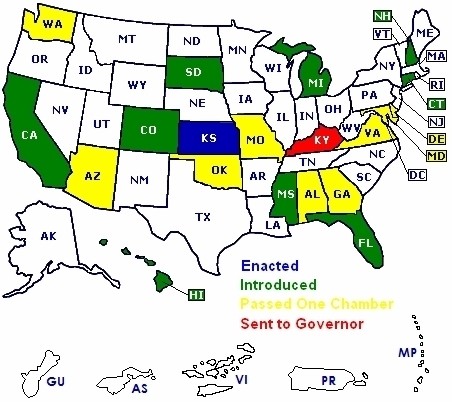FORT RILEY, Kan. (Army News Service, April 25, 2008) -- The nation's military children are one step closer to smoother school transfers, thanks to the signing of a bill by the governors of Kansas and Kentucky.
Kansas Gov. Kathleen Sebelius hosted a ceremonial signing Thursday of the Interstate Compact on Educational Opportunity for Military Children. The event at the state's capitol in Topeka was attended by Lt. Gen. William B. Caldwell IV, commanding general of the U.S. Army Combined Arms Center and Fort Leavenworth, and Maj. Gen. Robert E. Durbin, commanding general, 1st Infantry Division and Fort Riley.
"There are many states and many people in those states who have no idea of the stress and the strains on military Families," Caldwell said. "They don't even understand the challenges they have moving from school to school because they have not been faced with that."
The compact is currently being considered by 24 other states. It will become reality if at least 10 states ratify the bill. Fourteen state legislatures already have bills submitted in one or both chambers.
The compact, developed by the Council of State Governments, education experts and the Department of Defense, addresses common problems that affect military students as a result of frequent moves and deployments.
States that agree to work collectively with other compact states create uniform standards of practice, including the transfer of records, course placement, graduation requirements, redundant or missed testing, entrance-age variations and other transition issues.
Gov. Sebelius actually signed the compact April 9 in Topeka and Kentucky Gov. Steve Beshear followed suit the next day.
At the ceremony Thursday, Caldwell explained that most Americans are "fairly consistent" in where they live throughout their children's school years, "probably living in the same district in the same home."
In contrast, he said military Families move six to 10 times between when their children enter elementary school until they graduate high school.
Caldwell said he believes awareness is key to the issue: "...I believe that if Americans know what military Families are faced with, and how challenging it is for them to pick up and go to another state ... that they will want to help and be a part of this, and they'll want to energize their lawmakers to pass legislation that will, in fact, support the military Families..."
Signing of the compact coincided with April being the "Month of the Military Child," and Maj. Gen. Durbin said the new legislation ties in well with the Army Family Covenant and the upcoming Army Community Covenant.
"I think it's a perfect fit," Durbin said. "I think the Army Family Covenant preceding the Army Community Covenant was exactly right because we make a commitment to those who are with us and raised their hand to serve us and those who support our Family members. On post, we have the ability to provide services that are commensurate with their service for quality of life.
About half of the servicemembers at Fort Riley live on post, Durbin said. He predicted that as the installation continues to grow, only one out of three will live on post.
"So our partners off post are in this with us to provide quality of life commensurate with their service. This community covenant is precisely what's needed to 'round the circle' so to speak so that all of us who are understanding we are a nation at war with an Army at war -- so we're all here to support those who are serving."
About 1.5 million children of military families attend schools other than those sponsored by the Department of Defense, according to DoD statistics.
(Bill Armstrong writes for the Fort Riley Post newspaper.)






Social Sharing